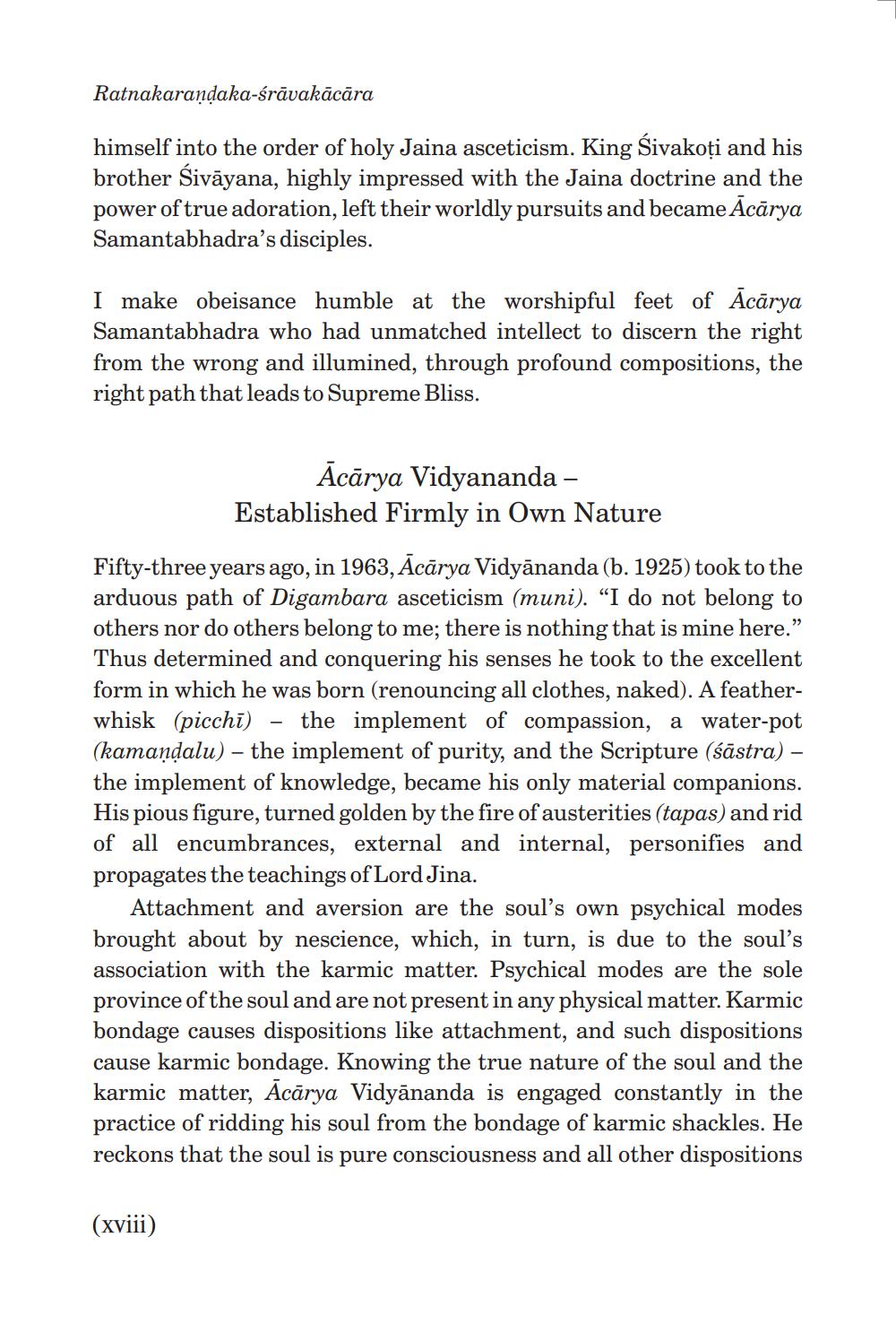________________
Ratnakarandaka-śrāvakācāra
himself into the order of holy Jaina asceticism. King Sivakoți and his brother Sivāyana, highly impressed with the Jaina doctrine and the power of true adoration, left their worldly pursuits and became Ācārya Samantabhadra's disciples.
I make obeisance humble at the worshipful feet of Ācārya Samantabhadra who had unmatched intellect to discern the right from the wrong and illumined, through profound compositions, the right path that leads to Supreme Bliss.
Ācārya Vidyananda - Established Firmly in Own Nature
Fifty-three years ago, in 1963, Ācārya Vidyānanda (b. 1925) took to the arduous path of Digambara asceticism (muni). “I do not belong to others nor do others belong to me; there is nothing that is mine here." Thus determined and conquering his senses he took to the excellent form in which he was born (renouncing all clothes, naked). A featherwhisk (picchi) - the implement of compassion, a water-pot (kamandalu) - the implement of purity, and the Scripture (śāstra) – the implement of knowledge, became his only material companions. His pious figure, turned golden by the fire of austerities (tapas) and rid of all encumbrances, external and internal, personifies and propagates the teachings of Lord Jina.
Attachment and aversion are the soul's own psychical modes brought about by nescience, which, in turn, is due to the soul's association with the karmic matter. Psychical modes are the sole province of the soul and are not present in any physical matter. Karmic bondage causes dispositions like attachment, and such dispositions cause karmic bondage. Knowing the true nature of the soul and the karmic matter, Acārya Vidyānanda is engaged constantly in the practice of ridding his soul from the bondage of karmic shackles. He reckons that the soul is pure consciousness and all other dispositions
(xviii)




